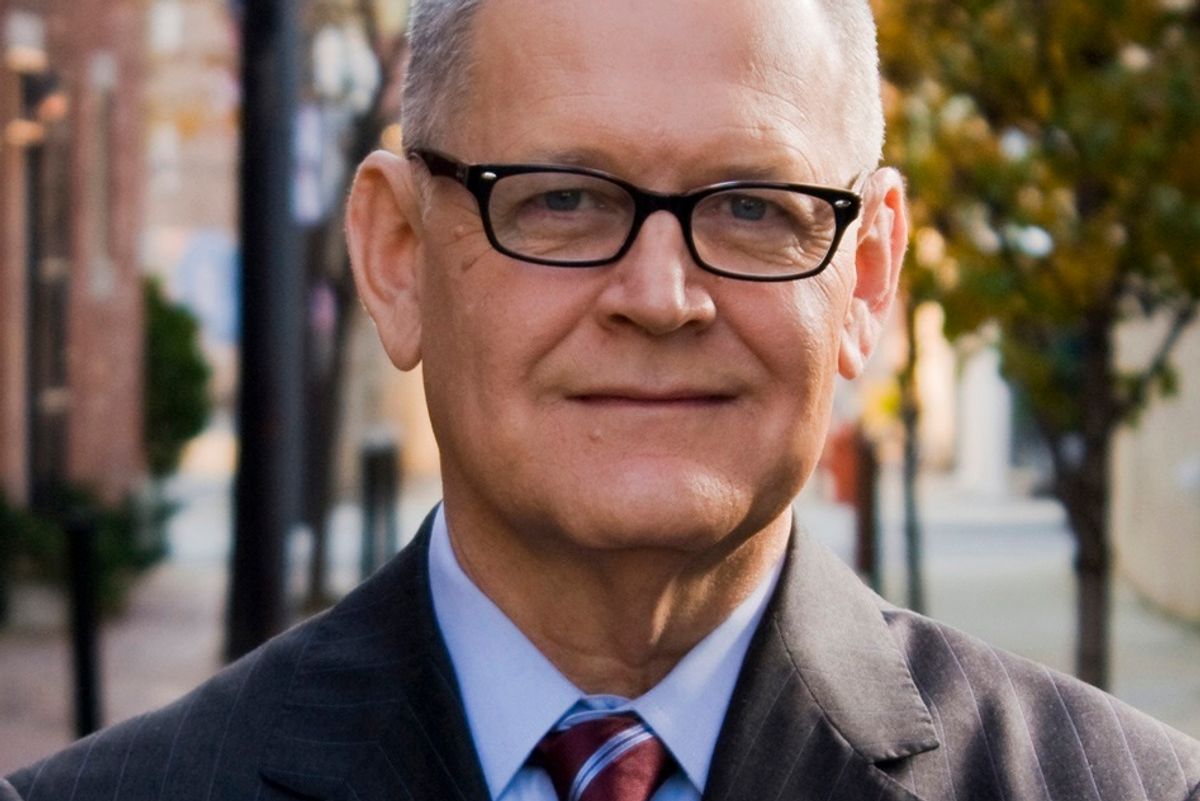"I owe the American people an apology." Health insurance executive apologizes for creating argument against Medicare for All.

As someone currently going through the process of "choosing" a health insurance plan through an employer, I can attest to the fact that "choice" is a pretty misleading word when it comes to healthcare.
Thankfully, I don't have to wonder if I'm just being finicky.
Wendell Potter, former vice president for communications at Cigna Healthcare, has taken to Twitter to explain how the "preserving choice" talking point in U.S. healthcare discussions is meaningless. How does he know? Because he helped come up with it.
Check this out:
"Lately I've noticed some Democratic politicians defending the current healthcare system by saying it preserves 'choice' for Americans," he wrote. "As a former health insurance exec who helped draft this talking point, I need to come clean on its back story, and why it's wrong and a trap. When I worked in the insurance industry, we were instructed to talk about 'choice,' based on focus groups and people like Frank Luntz (who wrote the book on how the GOP should communicate with Americans). I used it all the time as an industry flack. But there was a problem."
RELATED: If Americans understood how absurd our system is, we'd all be demanding universal healthcare
"As a health insurance PR guy, we knew one of the huge *vulnerabilities* of the current system was LACK of choice. In the current system, you can't pick your own doc, specialist, or hospital without huge 'out of network' bills. So we set out to muddy the issue of 'choice," he continued. "As industry insiders, we also knew most Americans have very little choice of their plan," he explained. "Your company chooses an insurance provider and you get to pick from a few different plans offered by that one insurer, usually either a high deductible plan or a higher deductible plan."
Yyyyup.
"Another problem insurers like mine had on the 'choice' issue: people with employer-based plans have very little choice to keep it. You can lose it if your company changes it, or you change jobs, or turn 26 or many other ways," he explained. "This is a problem for defenders of the status quo. Knowing we were losing the 'choice' argument, my pals in the insurance industry spent millions on lobbying, ads and spin doctors — all designed to gaslight Americans into thinking that reforming the status quo would somehow give them 'less choice.'"
Interesting. I'm not the only one starting to feel a bit ragey here, right?
Potter went on to share an advertisement from a campaign, explaining, "An industry front group launched a campaign to achieve this very purpose. Its name: 'My Care, My Choice.' Its job: Trick Americans into thinking they currently can choose any plan they want, and that their plan allows them to see any doctor. They've spent big in Iowa."
"This isn't the only time the industry made 'choice' a big talking point in its scheme to fight health reform," he continued. "Soon after Obamacare was passed, it created a front group called the Choice and Competition Coalition, to scare states away from creating exchanges with better plans."
The rage. It burns.
RELATED: He went to the ER in Taiwan, then his "Horrors of Socialized Medicine" post went viral.
"The difference is, this time *Democrats* are the ones parroting the misleading 'choice' talking point. And they're even using it as a weapon against each other," Potter pointed out. "Back in my insurance PR days, this would have stunned me. I bet my old colleagues are thrilled, and celebrating. The truth, of course, is you have little 'choice' in healthcare now. Most can't keep their plan as long as they want, or visit any doctor or hospital. Some reforms, like Medicare For All, *would* let you. In other words, M4A actually offers more choice than the status quo."
FOR THE LOVE. GET IT TOGETHER, AMERICA.
Potter signed off explained how all this political talk of "choice" serves no one but the insurance industry.
"So if a politician tells you they oppose reforming the current healthcare system because they want to preserve "choice," either they don't know what they're talking about — or they're willfully ignoring the truth. I assure you, the insurance industry is delighted either way."
For the umpteen-millionth time, the U.S. is the only developed nation not to provide some form of universal healthcare to its citizens, we pay twice as much for healthcare than other high-income countries, and our health outcomes are not any better for it. We need universal healthcare and we need it now. And we need to thank Wendell Potter for breaking ranks with his former industry and sharing this insider information with all of us.



 In a 4-day model, kids often (but not always) receive less instructional time. Photo by
In a 4-day model, kids often (but not always) receive less instructional time. Photo by 


 Flags can be a symbol of both patriotism and nationalism.
Flags can be a symbol of both patriotism and nationalism. Love of one's country is nice. But there's a difference between patriotism and nationalism.
Love of one's country is nice. But there's a difference between patriotism and nationalism.  Mark Twain had quite a bit to say about patriotism.
Mark Twain had quite a bit to say about patriotism. 
 Retro vibes with bold colors and music! 🎶✨ #80sFashion
Retro vibes with bold colors and music! 🎶✨ #80sFashion Confused expression with a questioning gesture.
Confused expression with a questioning gesture. Students eagerly participate in a classroom discussion.
Students eagerly participate in a classroom discussion.